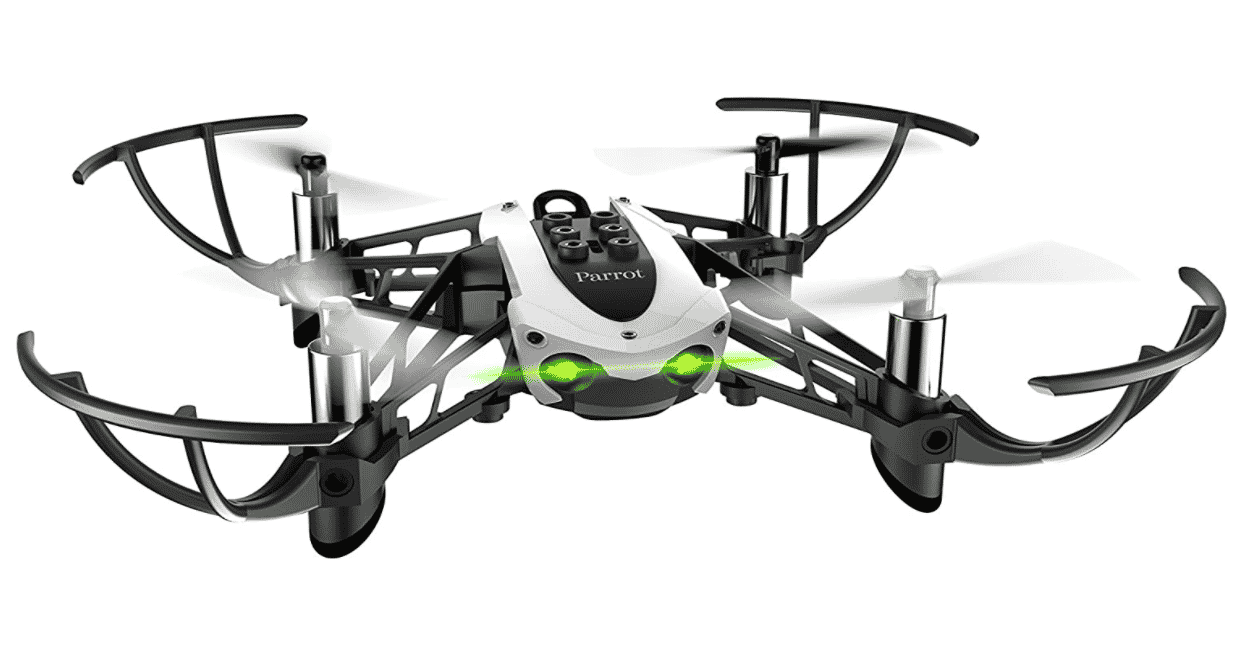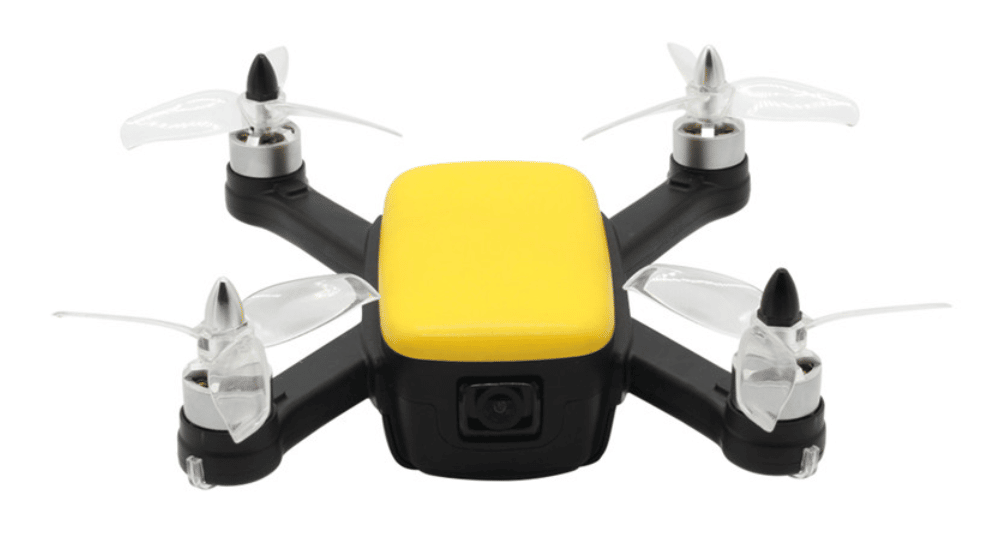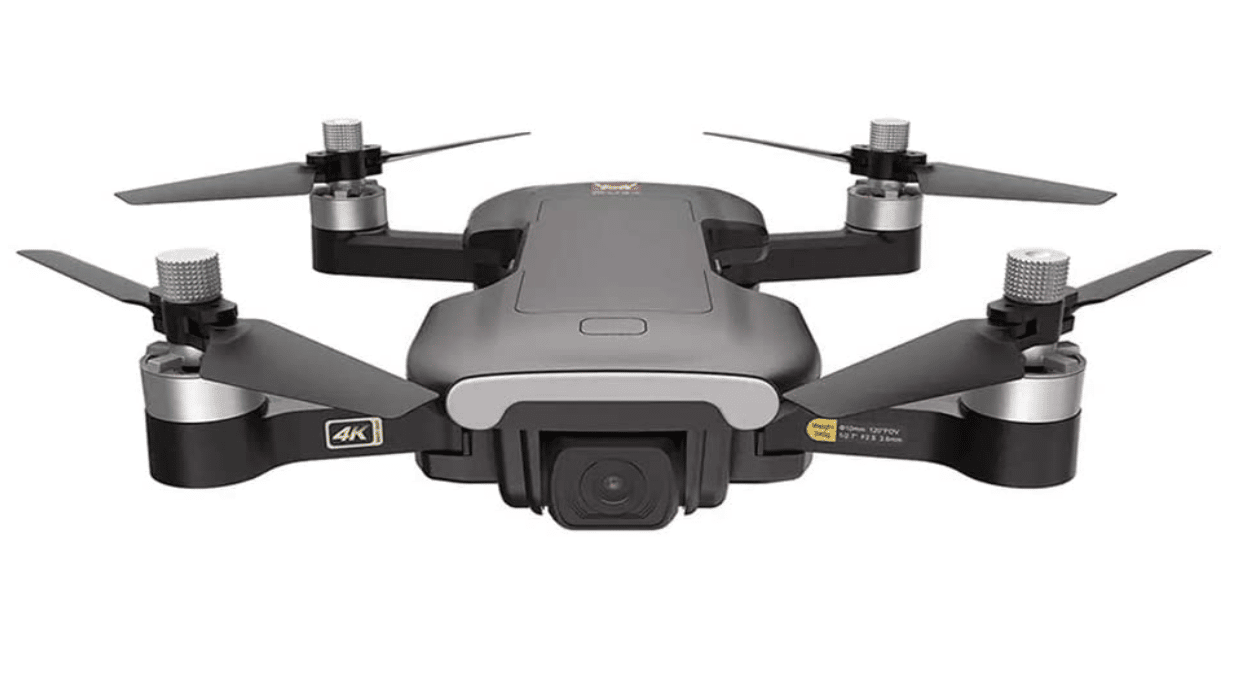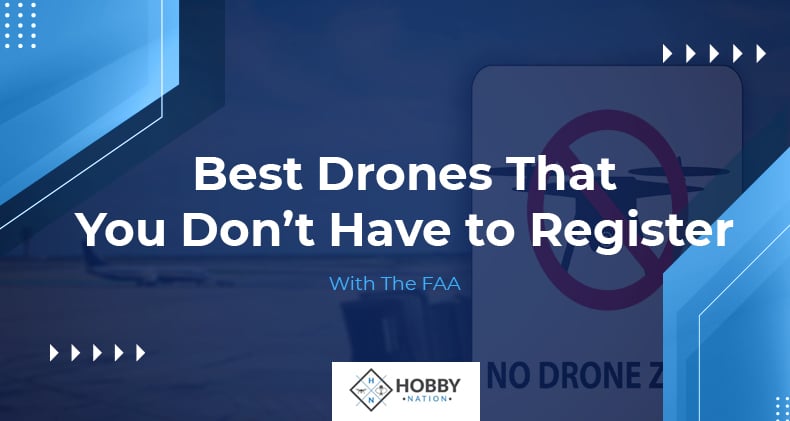Just like the selfie stick before it, drones are part of a new wave of technology that has come to stay. But, being the complex and expensive technological equipment that it is, it is being escorted by regulations and laws that seek to ensure its safe and proper utilization. One of these regulations is that you must register your drone with the FAA.
While most powerful drones do require licensing and registration with the FAA, it all comes down to its weight and the application it is being given. If your drone weighs under 250 grams and is being used for recreational purposes, then registration might be something you could avoid altogether. Tag along as we elaborate.
Drones are machines that are being seen more and more often in our daily lives, and, as a consequence, it has led to a growing and vast interest in improving their technological functions and capabilities. In doing this, the federal government had to catalog drones as unmanned aerial systems or UASs and enacted laws to regulate these devices. UASs also include quadcopters and RC planes so if it flies and you are not on it or hanging from it, it would fall under this bracket.
These laws serve as a means to limit and control how and when these machines are used, not only in communities but also in other public venues where the safety of others could be threatened by poor piloting skills, equipment, weather, and many other factors. Additionally and, not surprisingly, these laws also seek to protect general privacy. The Federal Aviation Administration (FAA) would be responsible for overseeing and enforcing that these restrictions being approved are effected and followed by all UAS's pilots, professionals, and amateurs alike.

What Makes A Drone Require FAA Registration?
If your drone weighs 250 grams or .55 pounds or more, then it must be registered with the FAA; even if it were to have no camera, it was to be a toy and have no means to become a commercial asset, it is still required that you register it.
Suppose your UAS weighs less than 250 grams. In that case, you should be able to bypass registration, and an excellent example of a machine like this would be the DJI Mavic Mini that purposefully weighs just 249 grams and is perfect for short and sweet recreational flying, and requires no registration with the FAA. Other great examples of no registration needed drones would be:
- Parrot Mambo FPV
- Funsky 913
- DJI Tello
- MJX Bugs B7
- JJRC X9 Heron
How Can I Use My Drone Commercially?
Now, if you are wondering how a drone can become a commercial asset, then we must ask the following question: Does your drone have a camera?
If the answer is yes, then this is how your drone potentially has a profitable and valuable feature that could merit the same kind of regulation the FAA oversees. This is because the camera on the drone has been improved tremendously since the very first drones. One can even get away with saying that it has been the most upgraded component.
The current technology in cameras equipped on drones such as the Draganflyer Commander can collect all kinds of astounding and intricate data capable of many different applications. It employs LiDAR sensor data, which uses laser light to illuminate a specific target and then, by measuring the reflections, creates data points used to make vivid 3D maps. Not only that, but it can penetrate tree covers and even the ground itself to detect hidden structures underground.
Another example is the Parrot ANAFI USA, which can take accurate orthomosaic frames used to visualize building sites for construction and assess public safety on largely populated areas by attaching several photos and making a presentation. This technology is very similar to the one Google Maps satellites engage in.
In this context, it seems pretty clear that drones can have a commercial connotation ranging from delivery, filmmaking, mining, and even power generation. All commercial drones require registration with the FAA.
Bizarrely, financial remuneration is not the only factor taken into account when determining if a drone is for commercial use, and this is where having a camera has a dramatic effect because taking photos to assist the sale of a property, taking aerial shots on a school game for a website and even goodwill photographic sessions with no direct compensation can be considered valid reasons to declare your drone a commercial asset.
The exception for recreational flights states that it must be purely for fun and personal enjoyment. You can bypass registration by having a lightweight, camera-less toy drone. However, you must still follow community-based safety guidelines established in cooperation with the FAA, enforcing flying restrictions on anything in the air. You can check this link for more information: https://www.faa.gov/uas/recreational_fliers/.

What Happens If I Don’t Register My Drone?
In most situations, you can go unnoticed while being an unregistered drone operator. The FAA does not perform raids to apprehend offenders, and the only other scenario that would alert the authorities would be someone personally reporting your unregistered drone and providing actual evidence of this occurrence to the FAA. Both these scenarios seem somewhat unlikely, right?
But, you must know that failing to register a drone is illegal under federal law, and you could face civil and criminal charges in the case that someone is hurt during a flight, in the case that you fly negligently or fly in unauthorized areas. These charges can be up to US$27,000 and up to US$250,000 plus three years of imprisonment, respectively, and this massively offsets the meager price of US$5.00 that it would cost you to register your drone directly with the FAA. You should only be 13 years old or older to be able to apply, and if you are younger than that, then a parent or legal guardian must register that drone.
Conveniently, the registration prices are the same for both commercial and recreational drones, with the difference being that if you are a commercial drone pilot, then you must pay for the registration of each of your drones separately. On the other hand, recreational drone pilots can use the same registration number for all of their drones.
In addition to carrying your registration number, you must mark your drone as well, meaning that your FAA registration number should be attached somewhere on the exterior of your UAS, and it has to be visible at all times. Keep in mind that even if you were to lose your registration number, you can always go back to the FAA website to download and print more copies, or you can just have it handy on your phone when taking the drone outside for a flight.

How Do I Register My Drone?
It is extremely easy to register your drone, and there is only one website where you can register, that being the FAAs very own. A paper registration method is required if your UAS weighs 55 pounds or more, but in all other instances, it can be registered digitally.
I must add that there are other private entities out there claiming that they can register your drone for you, but you will notice that the price is considerably inflated, and that is because it is a known scam. You should only register with the FAA, and you can always do this yourself from the comfort of your home.
Let us go over the simple steps taken to register your drone. First, you must create an account on the FAA DroneZone website and choose how to register your drone, whether it is recreationally or commercially.
For recreational registration, fill out your general information such as name and address, do a quick review of the safety guidelines, and then submit your payment information to pay for the US$5.00 registration fee. Once you do this, you have officially become a registered recreational drone pilot. Very easy, right?
Now, for commercial registration, most of the steps remain the same. Still, you must include the name of your company or business to register under Part 107 for Commercial Flyer Registration and enter the specific UAS type, manufacturer, serial number, model, and even a nickname if you choose to. Again, after paying the small US$5.00 fee and reviewing some quick guidelines, you have officially become a registered commercial drone operator.

Conclusion
So, now that we know all the factors that a drone should have to warrant registration, we know that, if light enough, we do not have to register it, and even if we did, it is not complicated to do and it would protect us against huge liabilities if something were to go wrong.
By registering, not only do we abide by federal law, but we may also start looking at our drones as a means of commercial income and employing them as such. After all, the chances are that there is a job out there for your UAS.
It is up to you how, when, and if your drone and its pilot have what it takes. These machines are capable of incredible things, and we are the ones behind the wheel, figuratively, of course.
Shawn Manaher loves to play with new toys and dive into new hobbies. As a serial entrepreneur, work definitely comes first but there is always room for hobbies.

